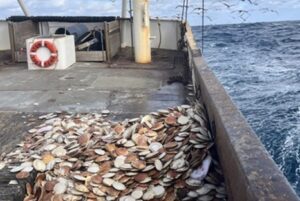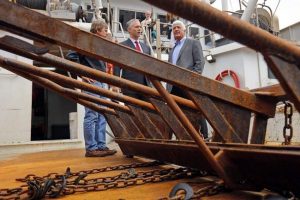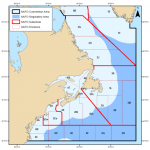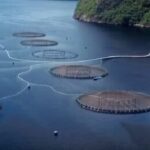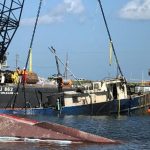Daily Archives: February 5, 2016
Todd Fisheries Technology’s first full scale Lobster Hatchery in Kilkeel, Northern Ireland.
 The hatchery is called Seascope and incorporates a visitor centre and oyster hatchery (also manufactured by Todd Fish). The motivation behind the hatchery was to ensure the locally important lobster fishery was stable and sustainable. Renowned researcher Professor Paulo Prodohl, from Queens University in Belfast, is working with the hatchery on new research relating to genetics, diet and efficacy of lobster hatcheries. The North Coast Lobster Fishermen’s Association are also partners and supporters of the project. Read the rest here 20:22
The hatchery is called Seascope and incorporates a visitor centre and oyster hatchery (also manufactured by Todd Fish). The motivation behind the hatchery was to ensure the locally important lobster fishery was stable and sustainable. Renowned researcher Professor Paulo Prodohl, from Queens University in Belfast, is working with the hatchery on new research relating to genetics, diet and efficacy of lobster hatcheries. The North Coast Lobster Fishermen’s Association are also partners and supporters of the project. Read the rest here 20:22
NEFMC Newsletter – Council Report
 Dear Interested Parties: You will find attached the New England Fishery Management Council’s newsletter, the Council Report. It summarizes the actions taken at the Council’s meeting in Portsmouth, NH last week. Click here -> NEFMC Council Rept_Jan2016.pdf .Also, please feel free to contact me with any questions and have a nice weekend. Patricia M. Fiorelli, Public Affairs Officer, New England Fishery Management Council (w) 978.465.0492, ext. 106 (c) 617.548.5786 [email protected] 16:45
Dear Interested Parties: You will find attached the New England Fishery Management Council’s newsletter, the Council Report. It summarizes the actions taken at the Council’s meeting in Portsmouth, NH last week. Click here -> NEFMC Council Rept_Jan2016.pdf .Also, please feel free to contact me with any questions and have a nice weekend. Patricia M. Fiorelli, Public Affairs Officer, New England Fishery Management Council (w) 978.465.0492, ext. 106 (c) 617.548.5786 [email protected] 16:45
Coast Guard medevacs Fisherman off the coast of Marquesas Keys, Florida
 A fisherman was medically evacuated by a Coast Guard search-and-rescue crew north of Marquesas Keys, Florida, Thursday. Watchstanders at Coast Guard Sector Key West, Fla., received notification from the crew aboard the Capt GC II of a 49-year-old male experiencing shortness of breath 13 nautical miles north of Marquesas Keys. After consulting with the duty flight surgeon, a Coast Guard Air Station Miami MH-65 helicopter crew launched to transport him to urgent medical care. The helicopter crew arrived on scene, hoisted the man and transported him to Key West International Airport where emergency medical services awaited. Watch the video here 13:43
A fisherman was medically evacuated by a Coast Guard search-and-rescue crew north of Marquesas Keys, Florida, Thursday. Watchstanders at Coast Guard Sector Key West, Fla., received notification from the crew aboard the Capt GC II of a 49-year-old male experiencing shortness of breath 13 nautical miles north of Marquesas Keys. After consulting with the duty flight surgeon, a Coast Guard Air Station Miami MH-65 helicopter crew launched to transport him to urgent medical care. The helicopter crew arrived on scene, hoisted the man and transported him to Key West International Airport where emergency medical services awaited. Watch the video here 13:43
Shrimp Task Force discusses penalties for fishing out of season
State officials and district attorneys continue to hammer out stricter penalties for shrimpers. 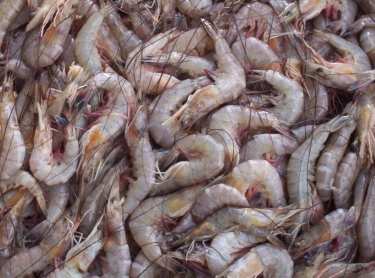 At its meeting today in Houma, the Louisiana Shrimp Task Force continued discussions on its plans to get legislation passed to strengthen the penalties for violators. Currently, shrimpers face fines, revocation of gear licenses, community service and potential jail time if accused of multiple violations. Officials said the issue with the current penalties is that an owner of a vessel with multiple violations can use another licensed captain who does not have violations out on the same boat. Read the rest here 10:58
At its meeting today in Houma, the Louisiana Shrimp Task Force continued discussions on its plans to get legislation passed to strengthen the penalties for violators. Currently, shrimpers face fines, revocation of gear licenses, community service and potential jail time if accused of multiple violations. Officials said the issue with the current penalties is that an owner of a vessel with multiple violations can use another licensed captain who does not have violations out on the same boat. Read the rest here 10:58
Maine lobster industry wary as warm waters suggest repeat of disastrous 2012 season
 For those in the lobster industry, any sign of a return to the conditions of 2012 is cause for high anxiety. Researchers say the industry needs to be prepared for that possibility because warming trends are laying the groundwork for a potential repeat of the disastrous season of four years ago. “We learned a hard lesson in 2012,” said Patrice McCarron, executive director of the Maine Lobstermen’s Association. Because of warm waters in the Gulf of Maine, peak harvesting started in May that year, weeks ahead of schedule. The catch jumped more than 20 percent, from 104 million pounds in 2011 to 127 million pounds in 2012. The shedding season,,, Read the article here 10:29
For those in the lobster industry, any sign of a return to the conditions of 2012 is cause for high anxiety. Researchers say the industry needs to be prepared for that possibility because warming trends are laying the groundwork for a potential repeat of the disastrous season of four years ago. “We learned a hard lesson in 2012,” said Patrice McCarron, executive director of the Maine Lobstermen’s Association. Because of warm waters in the Gulf of Maine, peak harvesting started in May that year, weeks ahead of schedule. The catch jumped more than 20 percent, from 104 million pounds in 2011 to 127 million pounds in 2012. The shedding season,,, Read the article here 10:29
Lobster breeding program is a success
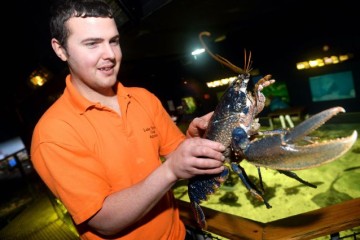 The town’s aquarium is raising lobsters to replenish the fisheries off the coast of Cumbria. When they’re big enough, the baby lobsters are released from a boat into the wild using weighted containers that sink slowly to the sea bed. The lids of the containers are made from paper so the baby lobsters can chew their way through it to freedom. Mark Vollers, the owner of Lake District Coast Aquarium, said: “There is clearly a strong connection to the mother in the breeding cycle in that if the eggs are taken from her they don’t survive or hatch successfully. “She has to release them when she senses the time is right. Read the rest here 10:11
The town’s aquarium is raising lobsters to replenish the fisheries off the coast of Cumbria. When they’re big enough, the baby lobsters are released from a boat into the wild using weighted containers that sink slowly to the sea bed. The lids of the containers are made from paper so the baby lobsters can chew their way through it to freedom. Mark Vollers, the owner of Lake District Coast Aquarium, said: “There is clearly a strong connection to the mother in the breeding cycle in that if the eggs are taken from her they don’t survive or hatch successfully. “She has to release them when she senses the time is right. Read the rest here 10:11
Sounds of ships and windfarms ‘may alter marine ecosystem’
 Underwater sound linked to human activity could alter the behaviour of seabed creatures which play a vital role in marine ecosystems, according to new research. The study found exposure to sounds that resemble shipping traffic and offshore construction results in behavioural responses in certain invertebrate species which live in the marine sediment. These species make a crucial contribution to the seabed ecosystem as their burrowing and bioirrigation activities (how much the organism moves water in and out of the sediment by its actions) are vital in nutrient recycling and carbon storage. Read the rest here 09:54
Underwater sound linked to human activity could alter the behaviour of seabed creatures which play a vital role in marine ecosystems, according to new research. The study found exposure to sounds that resemble shipping traffic and offshore construction results in behavioural responses in certain invertebrate species which live in the marine sediment. These species make a crucial contribution to the seabed ecosystem as their burrowing and bioirrigation activities (how much the organism moves water in and out of the sediment by its actions) are vital in nutrient recycling and carbon storage. Read the rest here 09:54
Coast Guard rescue stations in SC, Oregon open till 2018
 U.S. Coast Guard helicopter search-and-rescue stations on the South Carolina and Oregon coasts will remain open at least until 2018. Sen. Tim Scott said in a statement Thursday that part of an authorization bill that cleared Congress this week includes keeping the Coast Guard Stations open. The bill was sent to the president to be signed. Losing the Air Facility Charleston and its search-and-rescue helicopter would have serious effects on one of our nation’s critical port cities and adversely impact the safety of mariners, residents and tourists in the Lowcountry,” Scott said. Scott and his fellow South Carolina Sen. Lindsey Graham worked with Sens. Ron Wyden and Jeff Merkley of Oregon to keep the facilities open. Read the rest here 08:33
U.S. Coast Guard helicopter search-and-rescue stations on the South Carolina and Oregon coasts will remain open at least until 2018. Sen. Tim Scott said in a statement Thursday that part of an authorization bill that cleared Congress this week includes keeping the Coast Guard Stations open. The bill was sent to the president to be signed. Losing the Air Facility Charleston and its search-and-rescue helicopter would have serious effects on one of our nation’s critical port cities and adversely impact the safety of mariners, residents and tourists in the Lowcountry,” Scott said. Scott and his fellow South Carolina Sen. Lindsey Graham worked with Sens. Ron Wyden and Jeff Merkley of Oregon to keep the facilities open. Read the rest here 08:33
LDWC approves fishing regulations out to 9-mile limit
 Recreational and commercial fishermen will have no changes in daily nor sized limits and the state will not alter current federal commercial fishing regulations on the use of gear in state waters out to nine miles. The one-year rule pushing state boundary waters out to nine nautical miles from the state’s wildly meandering coastline was given Congressional approval in December. In some cases, state laws governing gear use by commercial fisheries were more strict than federal laws. Thursday, during the state Wildlife and Fisheries Commission’s monthly meeting, the LDWC unanimously approved a resolution to apply state recreational regulations and retain federal commercial fishing regulations out to the nine-mile limit. Read the rest here 07:41
Recreational and commercial fishermen will have no changes in daily nor sized limits and the state will not alter current federal commercial fishing regulations on the use of gear in state waters out to nine miles. The one-year rule pushing state boundary waters out to nine nautical miles from the state’s wildly meandering coastline was given Congressional approval in December. In some cases, state laws governing gear use by commercial fisheries were more strict than federal laws. Thursday, during the state Wildlife and Fisheries Commission’s monthly meeting, the LDWC unanimously approved a resolution to apply state recreational regulations and retain federal commercial fishing regulations out to the nine-mile limit. Read the rest here 07:41
Disaster loans opened to California’s Dungeness crab fishermen, businesses
 The U.S. Small Business Administration announced that low-interest disaster loans are now available to commercial anglers and other businesses affected by the continued closure, which stems from a potentially deadly neurotoxin affecting the fishery. The loans, which max out at $2 million, with 4 percent interest, are the first significant help extended to crabbers, seafood processors and others who have been economically devastated by the foregone season. California crab landings are usually worth about $60 million a year or more.,, It does not appear that deckhands, who often work as contracted employees, would qualify for the business loans. Those workers comprise a group that is among the most desperate amid the crab closure. Read the rest here 06:54
The U.S. Small Business Administration announced that low-interest disaster loans are now available to commercial anglers and other businesses affected by the continued closure, which stems from a potentially deadly neurotoxin affecting the fishery. The loans, which max out at $2 million, with 4 percent interest, are the first significant help extended to crabbers, seafood processors and others who have been economically devastated by the foregone season. California crab landings are usually worth about $60 million a year or more.,, It does not appear that deckhands, who often work as contracted employees, would qualify for the business loans. Those workers comprise a group that is among the most desperate amid the crab closure. Read the rest here 06:54
































